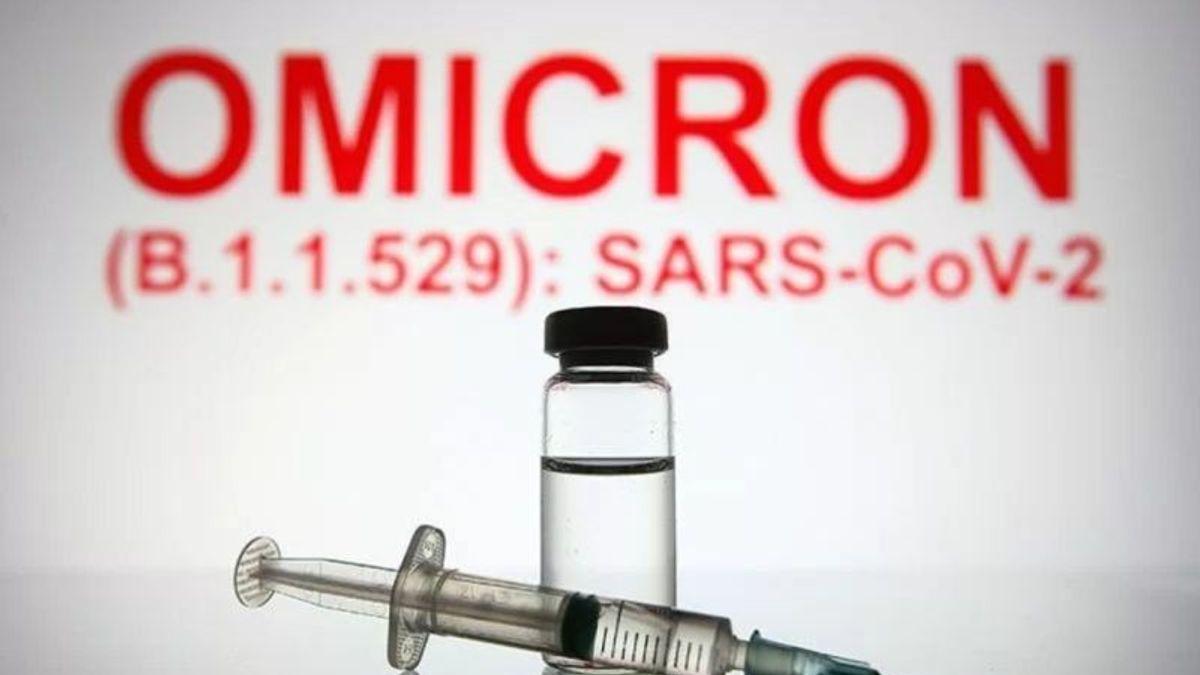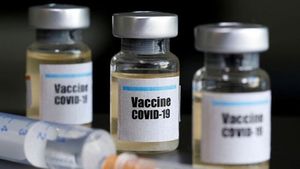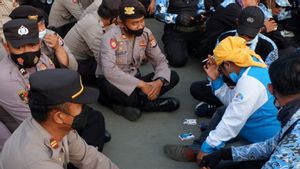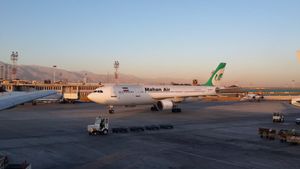JAKARTA - The Ministry of Health reports that the number of Omicron cases involving foreign travelers and local transmissions in Indonesia has increased to 572 as of Wednesday, January 12.
"Almost half or around 276 people have finished undergoing isolation, while the remaining 296 people are still in isolation. From the results of monitoring in the field, the majority of symptoms are mild and asymptomatic. So, no serious treatment is needed," said Ministry of Health Spokesperson Siti Nadia Tarmizi, who confirmed that in Jakarta, Antara, Friday, January 14.
Reporting from the official website of the Ministry of Health www.sehatnegeriku.kemkes.go.id, the number of COVID-19 variants of Omicron was reported to have increased by 66 people, bringing the total to 572 people. The addition of these cases consisted of 33 cases from international travelers and 33 local transmissions.
All patients are required to undergo a health quarantine. The majority are undergoing quarantine at the Wisma Atlet Kemayoran Hospital (RSDC). The number is around 339 people, the rest are undergoing quarantine in hospitals that have been appointed by the COVID-19 Handling Task Force.
Nadia said there was no difference in symptom characteristics between patients traveling abroad and patients with local transmission. Most of the symptoms are mild and asymptomatic. The most common symptoms experienced by patients are cough, runny nose, and fever.
The Director of Prevention and Control of Vector and Zoonotic Diseases of the Directorate General of P2P of the Ministry of Health said the addition of Omicron cases in recent times had implications for a spike in national daily cases. In fact, the proportion of the Omicron variant is much higher than the Delta variant.
"From the results of monitoring carried out by the Ministry of Health, probable cases of Omicron have started to increase since early 2022. Most of them are foreign travel agents, this has an impact on the increase in daily cases of COVID-19 in Indonesia," she said.
Facing a surge in COVID-19 cases, the Ministry of Health will increase the implementation of 3T, namely testing, tracing, and treatment, especially in areas that have the potential to experience high case transmission.
"We have taken steps to anticipate the spread of Omicron by intensifying 3T, especially in the areas of Java and Bali," she said.
For testing, the Ministry of Health has distributed S-Gene Target Failure (SGTF) kits to all supervisory and government-owned laboratories and ensured that they are sufficient. The capacity for PCR and SGTF examinations is also sought to be accelerated, so that case finding can be carried out as early as possible.
SEE ALSO:
Regarding tracing, said Nadia, the Ministry of Health will increase the ratio of tracing or tracking in areas where the number of positive cases is more than 30 people to prevent a wider spread. The tracing process will involve the National Armed Forces (TNI), National Police (Polri), and the community.
For treatment, the Ministry of Health guarantees the availability of centralized isolation rooms and independent isolation for cases of mild and asymptomatic symptoms, while for moderate and severe symptoms, hospitals with adequate bed capacity have been prepared.
"Thus, confirmed patients can undergo good isolation to break the chain of transmission of COVID-19," she said.
Considering that this variant spreads much faster than the Delta variant, Nadia appealed to the public to always be vigilant with the discipline of implementing the 5M health protocol and hasten to get a COVID-19 vaccination.
The English, Chinese, Japanese, Arabic, and French versions are automatically generated by the AI. So there may still be inaccuracies in translating, please always see Indonesian as our main language. (system supported by DigitalSiber.id)


















